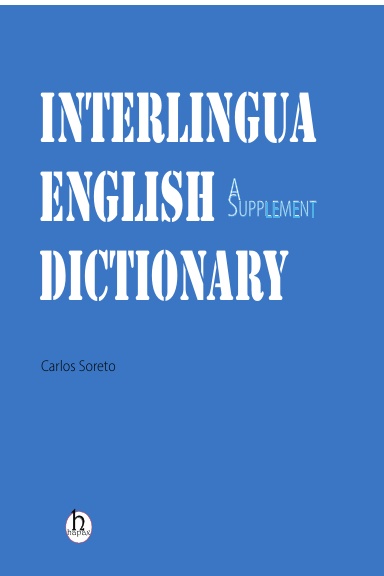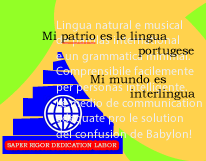 Comemora-se hoje o dia da latinidade, instituído a 15 de Maio de 1954, aquando da criação da União Latina (UL).
Comemora-se hoje o dia da latinidade, instituído a 15 de Maio de 1954, aquando da criação da União Latina (UL).No sítio oficial da UL é dito que a data «marca o início de um período ao longo do qual os países latinos estabeleceram mecanismos permitindo preservar a riqueza cultural do mundo latino, dos quais são herdeiros, para melhor encarar o futuro.» Bem, se se percorrer o sítio, chega-se facilmente à conclusão de que as manifestações levadas a efeito até agora (ainda que positivas) não passaram de sol de pouca dura – o que levanta a questão: qual a causa que levou a que «os governos, os organismos internacionais e as organizações não governamentais que partilham os valores da latinidade» não prosseguissem esse aprofundamento intercultural...
Embora nestes últimos anos se vivam tempos difíceis (que sempre o foram para «os mesmos», seguindo a leitura histórica), penso que a causa dessa letargia não se deve a fatores económicos, mas antes culturais, com origem na diferença (e tentativa hegemónica) linguística de cada um dos países de onde irradia uma língua materna.
A solução, «claro estaria», seria interlíngua,
 a única língua que poderá estabelecer a ponte (sem fronteiras geográficas e sem barreiras culturais) entre todas as nações da esfera de influência latina, e mais além...
a única língua que poderá estabelecer a ponte (sem fronteiras geográficas e sem barreiras culturais) entre todas as nações da esfera de influência latina, e mais além...Será que (ainda) ninguém vê isso?



 linguistic terminology
linguistic terminology












.jpg)




For two years I had the opinion that Interlingua is the best candidate to fill the position of a unifying language among the Latin/Romance speaking countries.
ReplyDeleteEventually, I came to realize it’s not really. Without going into too much detail, Interlingua may have a 100% Romance lexicon (arguments aside that it’s an unhappy adhesion of Romance/Latin), but the language is not Romance.
The same argument can be made about English. Some would like English to be considered on the margins of the Romance club as, as you know, the language's lexicon is highly influenced by Romance and Latin, but even if English were to have a lexicon of 100% Romance it would not be part of the Romance group. Some linguists, like Romanicist, Rebecca Posner of Oxford University, even have the opinion that French is on the verge, or isolated to some extent, from of being Romance, and should be kicked-out of the club as it has gone much further along the line of becoming an analytic language than the other languages. In fact, French has re-Romanicized its language to some extent over the course of the centuries with the aid of the prestigious parent Latin.
Interlingua Románica is a much better candidate to be Romance, and it’s a language that fills the position of a unifying language among Latins much more neatly, but yet inherits some of the same regularizing problems from Interlingua. It’s almost there but not quite.
From this point of view, I find that Interlingua, a good seminal language on the road to Latinity, but more recent creations are better.
Further, I have found that most Romance speakers, who haven’t got any great interest in simplistic and naturalistic conlangs, have no desire or feel no inclination to uptake such languages because they feel their language just simply is not represented well by languages like Interlingua.
Besides, Interlingua was one of those grand projects of the post-war 50s. The goal of IALA was not to create a language for Romania, but to offer a simplistic language that had at its core the historical prestigious Latin that was, at one time, the cultural engine for Europe and the West.
With the diminution of Europe over the past several decades (a trend that will likely to continue), and the rise of the other cultural hubs around the world, there’s less persuasive argument to back such projects like Interlingua. They have become culturally and linguistically defunct.